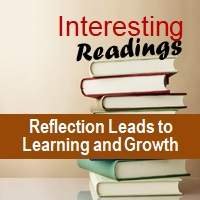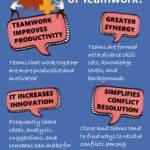
Experience followed by reflection leads to learning and growth
Reflection is something you’ve most likely come across in self-development activities, job review cycles, or project update meetings. And for good reason, experience followed by reflection leads to learning and growth.
In some professions – medicine, technology development, teaching, for example – reflection has even become a defining feature of competence and is often seen as the bedrock of professional identity and a way to prevent professional stagnation.
Here’s why you should include reflection as part of your regular workplace routine.
Reflection brings meaning
Organisational psychologist Adam Grant describes reflection as ‘the conscious examination of past experiences, thoughts and ways of doing things to bring meaning to the present and the future’.
Reflection can challenge attitudes and beliefs, enhance understanding, and inform decisions and actions. It allows you to:
- identify patterns and opportunities for learning
- gain more learning from individual experiences
- monitor progress.
set goals and objectives relating to the learning experience - develop self-awareness – learning about yourself to improve
Reflection can take many forms. It can range from solitary introspection to critical dialogue with a group of peers.
And it is important to reflect and learn from positive and successful situations as much as from negative incidents that you think could have been better.
“If you find yourself reviewing old mistakes without gaining new insights,” says Grant, “stop reflecting on the past and start experimenting in the present. New experiences lay the foundation of future reflection.”
Reflection boosts performance
There are important practical business implications as well – reflection has been shown to boost individual performance in the workplace.
“Companies often use tools such as learning journals as a way to encourage deliberate learning in training and regular operations,” say Francesca Gino and Gary Pisano at Harvard Business School. “Our personal experience is that individuals of all ages may not treat these exercises with much seriousness. However our findings suggest that they should. Reflecting on what you’ve done teaches you to do it better next time.”
Reflection will help you learn “smarter”, and save you from trying to learn “harder”.
You can find many great resources and toolkits to inspire you and help you use reflection activities more often in your own work.
(Reference https://insitu.digital/on-reflection-the-value-of-reflection-in-learning/)


